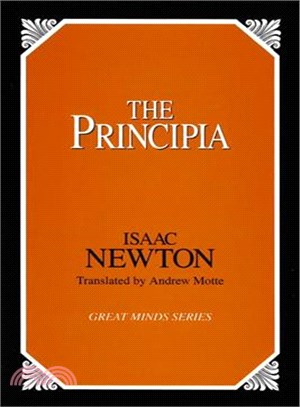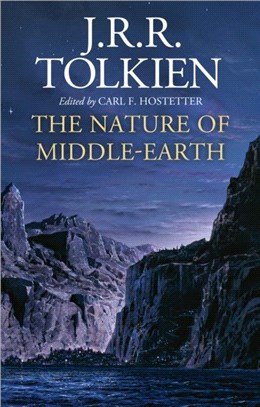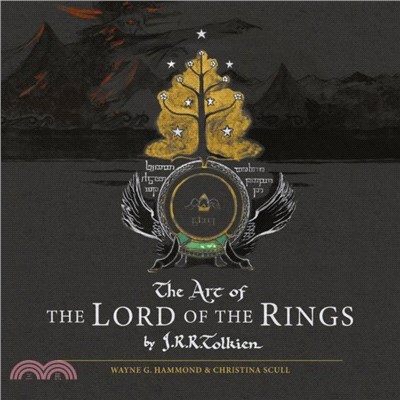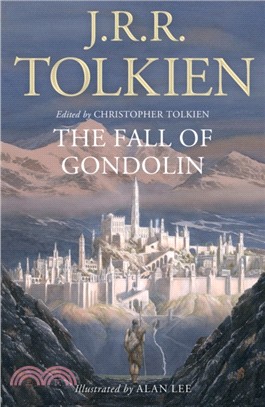The Principia
商品資訊
系列名:Great Minds
ISBN13:9780879759803
出版社:Prometheus Books
作者:Isaac Newton Sir; Andrew Motte (TRN)
出版日:1995/06/01
裝訂:平裝
規格:21.6cm*14.0cm*3.8cm (高/寬/厚)
定價
:NT$ 684 元無庫存,下單後進貨(到貨天數約30-45天)
下單可得紅利積點:20 點
商品簡介
作者簡介
相關商品
商品簡介
Sir Isaac Newton's Principia Mathematica (Mathematical Principles) (1687) is considered to be among the finest scientific works ever published. His grand unifying idea of gravitation, with effects extending throughout the solar system, explains by one principle such diverse phenomena as the tides, the precession of the equinoxes, and the irregularities of the moon's motion.
Newton's brilliant and revolutionary contributions to science explained the workings of a large part of inanimate nature mathematically and suggested that the remainder might be understood in a similar fashion. By taking known facts, forming a theory that explained them in mathematical terms, deducing consequences from the theory, and comparing the results with observed and experimental facts, Newton united, for the first time, the explication of physical phenomena with the means of prediction. By beginning with the physical axioms of the laws of motion and gravitation, he converted physics from a mere science of explanation into a general mathematical system.
Newton's brilliant and revolutionary contributions to science explained the workings of a large part of inanimate nature mathematically and suggested that the remainder might be understood in a similar fashion. By taking known facts, forming a theory that explained them in mathematical terms, deducing consequences from the theory, and comparing the results with observed and experimental facts, Newton united, for the first time, the explication of physical phenomena with the means of prediction. By beginning with the physical axioms of the laws of motion and gravitation, he converted physics from a mere science of explanation into a general mathematical system.
作者簡介
ISAAC NEWTON was born in Woolsthorpe, Lincolnshire, Eng-land, on December 25, 1642. His father having died before his birth and his mother having remarried, Newton was sent to live with his maternal grandmother in the neighboring town of Grantham, where he attended school. An inattentive student, Newton nonetheless showed a great aptitude for making mechani-cal contrivances such as windmills and water clocks. While at school, Newton boarded with an apothecary, who may have imparted to the youngster a lifelong love of chemical experiments.
In 1656, following the death of her second husband, Newton's mother removed him from school and brought him back to Woolsthorpe with the idea of making her son a farmer. Newton's teacher at Grantham, recognizing the boy's talents, prevailed upon her to allow Newton to prepare for entrance to Cambridge University. He entered Trinity College, Cambridge, in 1661, under the tutelage of Isaac Barrow, Lucasian Professor of Mathematics, and took his degree four years later.
Between 1665 and 1667, Newton made great strides in his method of "fluxions" (an early form of differential calculus) and began work on gravitation. It was also at this time that Newton inaugurated his studies on the nature of light: he demonstrated that differences in color resulted from differences in refrangibility, i.e., the ability of a ray of light to bend when passed through a refracting medium. In 1667, Newton returned to Cambridge from Woolsthorpe (where he had gone to escape the plague); two years later he succeeded Barrow as Lucasian Professor. In 1672 Newton was elected to the Royal Society.
Newton's great work, Philosophiae naturalis principia mathematica, or The Mathematical Principles of Natural Philoso-phy (1687), grew out of his ongoing investigations into gravitation and planetary motion. Written over a period of only eighteen months, this book was immediately hailed as a masterpiece: it?demonstrated how the law of gravitation could explain diverse phenomena, ranging from the tides to the irregularities of the moon's motion, and made possible a mathematical principle, unrealized up to that time, of the workings of a dynamic universe. Although Newton's system needed to be revised in the twentieth century in view of the theory of relativity and quantum mechanics, it remains valid for systems of ordinary dimensions, involving velocities that do not approach the speed of light.
Newton's contributions to science brought him fame and financial security: in addition to his professorship at Cambridge, Newton served for two years as a member of the Convention Parliament following the overthrow of King James II during the "Glorious Revolution" of 1688. In 1696 Newton was ap-pointed warden, and later master, of the mint, a lucrative position he held until his death. In 1704 he was made president of the Royal Society, and in 1705 he received a knighthood from Queen Anne. While a member of Parliament, Newton came into contact with such luminaries as the philosopher John Locke and the diarist Samuel Pepys.
Newton's life was not without bitterness, however: a pro-tracted controversy raged over whether Newton or Gottfried Wilhelm von Leibniz had been first in the invention of calculus, which strained scientific relations between England and the Continent. And, despite the Principia's enthusiastic reception, Newton's system would not be fully accepted among scientists and in university teaching until after his death.
Following his retirement from Cambridge in 1701, Newton prepared revised editions of the Principia (1713, 1726) and pub-lished his second great treatise, the Opticks, in 1704. He died in Kensington, England, on March 20, 1727.
In 1656, following the death of her second husband, Newton's mother removed him from school and brought him back to Woolsthorpe with the idea of making her son a farmer. Newton's teacher at Grantham, recognizing the boy's talents, prevailed upon her to allow Newton to prepare for entrance to Cambridge University. He entered Trinity College, Cambridge, in 1661, under the tutelage of Isaac Barrow, Lucasian Professor of Mathematics, and took his degree four years later.
Between 1665 and 1667, Newton made great strides in his method of "fluxions" (an early form of differential calculus) and began work on gravitation. It was also at this time that Newton inaugurated his studies on the nature of light: he demonstrated that differences in color resulted from differences in refrangibility, i.e., the ability of a ray of light to bend when passed through a refracting medium. In 1667, Newton returned to Cambridge from Woolsthorpe (where he had gone to escape the plague); two years later he succeeded Barrow as Lucasian Professor. In 1672 Newton was elected to the Royal Society.
Newton's great work, Philosophiae naturalis principia mathematica, or The Mathematical Principles of Natural Philoso-phy (1687), grew out of his ongoing investigations into gravitation and planetary motion. Written over a period of only eighteen months, this book was immediately hailed as a masterpiece: it?demonstrated how the law of gravitation could explain diverse phenomena, ranging from the tides to the irregularities of the moon's motion, and made possible a mathematical principle, unrealized up to that time, of the workings of a dynamic universe. Although Newton's system needed to be revised in the twentieth century in view of the theory of relativity and quantum mechanics, it remains valid for systems of ordinary dimensions, involving velocities that do not approach the speed of light.
Newton's contributions to science brought him fame and financial security: in addition to his professorship at Cambridge, Newton served for two years as a member of the Convention Parliament following the overthrow of King James II during the "Glorious Revolution" of 1688. In 1696 Newton was ap-pointed warden, and later master, of the mint, a lucrative position he held until his death. In 1704 he was made president of the Royal Society, and in 1705 he received a knighthood from Queen Anne. While a member of Parliament, Newton came into contact with such luminaries as the philosopher John Locke and the diarist Samuel Pepys.
Newton's life was not without bitterness, however: a pro-tracted controversy raged over whether Newton or Gottfried Wilhelm von Leibniz had been first in the invention of calculus, which strained scientific relations between England and the Continent. And, despite the Principia's enthusiastic reception, Newton's system would not be fully accepted among scientists and in university teaching until after his death.
Following his retirement from Cambridge in 1701, Newton prepared revised editions of the Principia (1713, 1726) and pub-lished his second great treatise, the Opticks, in 1704. He died in Kensington, England, on March 20, 1727.
主題書展
更多
主題書展
更多書展今日66折
您曾經瀏覽過的商品
購物須知
外文書商品之書封,為出版社提供之樣本。實際出貨商品,以出版社所提供之現有版本為主。部份書籍,因出版社供應狀況特殊,匯率將依實際狀況做調整。
無庫存之商品,在您完成訂單程序之後,將以空運的方式為你下單調貨。為了縮短等待的時間,建議您將外文書與其他商品分開下單,以獲得最快的取貨速度,平均調貨時間為1~2個月。
為了保護您的權益,「三民網路書店」提供會員七日商品鑑賞期(收到商品為起始日)。
若要辦理退貨,請在商品鑑賞期內寄回,且商品必須是全新狀態與完整包裝(商品、附件、發票、隨貨贈品等)否則恕不接受退貨。
























